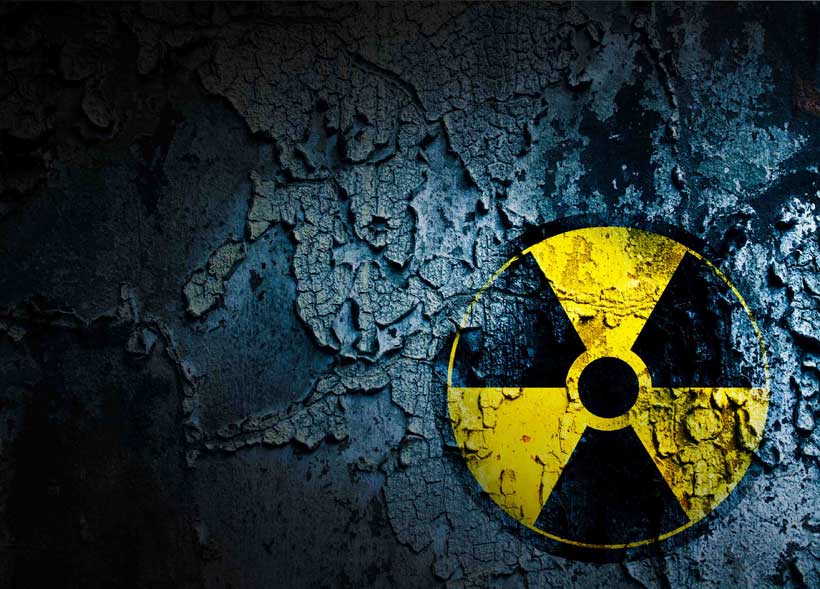The onset of Taliban rule in Afghanistan has led to the emergence of numerous security and political concerns for the world. While the region seeks to adapt to this new reality, there’s also no dearth of propagation of extremely far-fetched ideas about the likely fall-out effects of the current Afghan situation. One such example is the latest fallacious fixation on the likelihood of power takeover by radical elements in Pakistan too, as well as the fall of the country’s nuclear assets to such elements.
The purported threat of takeover of Pakistan’s nuclear assets by terrorists emerged initially after 9/11 and the subsequent invasion of Afghanistan, leading to the embodiment of terror outfits in Pakistan as well. However, over the last two decades, Pakistan has time and again ensured the world that it is fully equipped to counter any such threat. For example, all of its warheads are installed with the ‘functional equivalent’ of Permissive Action Link (PAL) access control, making their use impossible even if they fall in the wrong hands. Besides, the Nuclear Threat Initiative’s Nuclear Safety Index has classified Pakistan as the most improved in the ‘Security and Control Measures category’ with an increase of 25 points. This is considered the second-largest improvement since the Index was launched over nine years ago. This should be sufficient for the world to realize that Pakistan is one of the most responsible nuclear weapons states.
But, while the world carries on with its unnecessary paranoia about the safety of Pakistan’s nuclear arsenal, the real threat about security of nuclear weapons has emerged within India as its nuclear program poses a multi-pronged threat – one which is largely and shockingly being ignored by the international community.
Over the past few months, there have been three known incidents of nuclear material thefts in India. Since the early 1990s, theft of over 200 kilograms of radioactive material has been detected in the country, hinting at the shambles that India’s nuclear security regime is in. It is even troubling to consider that while the theft of 200 kilograms was intercepted, how much of it would have gone undetected and where it is now, as there is always the possibility that the extremist elements can acquire this weapons grade highly radioactive nuclear material from the black market and make a dirty bomb to inflict catastrophic damage.
Illicit nuclear trade and the possible existence of a nuclear black market in India is one of the most alarming factors when it comes to nuclear safety and security in the present day and age. But, so far, none of the nuclear watchdogs have taken up the issue.
So, while Pakistan expressed concerns over the theft of extremely rare radioactive material and called for a thorough investigation, citing the existence of a nuclear black market in India, the world remains hush on the matter. This goes to show the West’s hypocrisy and its habit of cherry-picking events that pose ‘enough threat’ to the global nuclear non-proliferation and security arrangements. This oblivious approach towards nuclear material theft in India can prove lethal to regional security as it can encourage terrorists to acquire nuclear material from black markets in India. The radical elements that the US military leadership thinks can lay their hands on nuclear assets in Pakistan, can conveniently go shopping for nuclear material in India.
India’s ever-growing disposition towards extremism as a polity and as a society makes the security environment of South Asia even more uncertain. The fascist ideologies of the Indian state, coupled with its tilt towards opting the policy of First Use of nuclear weapons present an extremely troubling picture for the strategic stability of the region.
Indian PM Narendra Modi has also threatened to use nuclear weapons against Pakistan in the event of a conflict just to increase his party’s vote bank. While it is common for politicians to use populist slogans during election campaigns, Modi’s threats should be a wake-up call for the world about the status of India’s nuclear posturing given that it has always claimed to be a secular, democratic, responsible nuclear capable state. Similarly, India that had initially adopted the policy of No First Use (NFU) has continuously been signalling a shift towards First Use. This leaves security experts concerned about the region’s strategic stability and ensuing arms race.
It is quite evident that the apparent tilt towards the willingness to use nuclear weapons first in a war emanates from the ruling BJP’s fascist Hindutva-centric ideological basis, that made it a clause of its election manifesto ‘revise and update’ the Indian nuclear doctrine.
Therefore, while Pakistan is unnecessarily maligned when it comes to the security of nuclear assets, in reality, the threats involving nuclear safety and security, proliferation as well as nuclear terrorism have been aggravating in India with each passing day. The international community must realize the gravity of the situation and take adequate measures to hold India responsible. It must also press India to address these nuclear safety and security concerns given the cooperation in the field of nuclear energy that the country enjoys with a number of powerful states, as well as hold it accountable for its irresponsible nuclear posturing.
Khansa Qureshi is a researcher at Centre for Aerospace & Security Studies (CASS), Islamabad, Pakistan. She can be reached at [email protected]
Image Source: Security of nuclear materials in India. (2021, May 8). Modern Diplomacy. https://moderndiplomacy.eu/2021/05/09/security-of-nuclear-materials-in-india/





